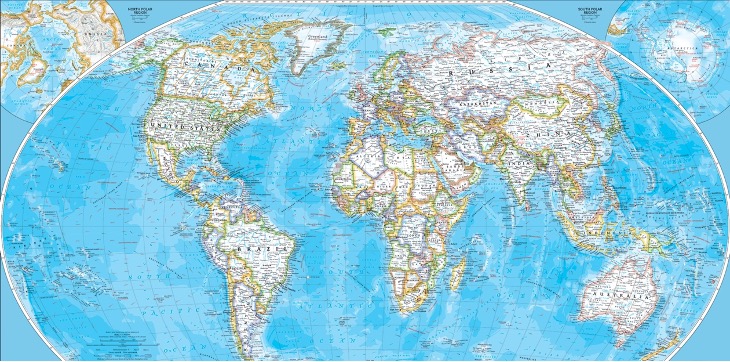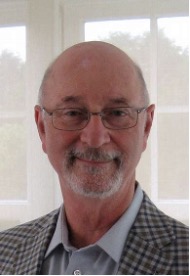JULY COMMITTEE OF THE MONTH 2023
International New Groups Committee (ING)
The IPA is a vital, expanding organisation, and its International New Groups Committee (ING) is a major avenue of growth. Over 100 members, plus two dedicated London-based staff members, implement the ING mandate. It is a significant IPA initiative currently operating in Europe, Eastern Europe, the Middle East, Asia, North and South America. As such, ING expresses the international character of IPA psychoanalysis as the world's leader in psychoanalytic training and development.

The intersection of the old and the new is precisely where ING operates. It is a transitional space where organisational and professional dreams are fostered and where groups acquire their own identity and the means to express psychoanalytic values and ambitions.
When members coalesce to form a Study Group, they have already decided to take the step that will eventually lead to becoming a Component Society. This will take a minimum of a decade and often more. One can appreciate the motivation and commitment that this requires. The aim of the Study Group is twofold. First, it is a home for like-minded members who can share and develop psychoanalytic interests, provide mutual support, and organise learning initiatives. Secondly, it is a developing training institute where a new generation of analysts-in-training are taught and developed according to IPA requirements.
The Study Group and later the Provisional Society are the incubators of IPA analytic life, and ING, through its Sponsoring and Liaison committees, helps to nurture and guide this process. Training Analysts from around the world participate in this process. It is intimate, complex, and delicate work that requires members who understand group formation and dynamics, psychoanalytic formation, and ING procedures. These are Board appointments, and the entire IPA leadership greatly respects the work.
There is recognition that the success of a Study Group, how it comes together, forms, trains, and evolves, will affect the integrity of that group for decades to come. In this regard, the future vitality and health of the group fall very much on the group's founders and the ING sponsors, who are an integral part of its foundation. It is a process that takes careful management, which is the task of sponsors and liaisons.
New Groups can be constituted with as little as four IPA Members somewhere in the world who live close enough to each other to enable the group to function as a cohesive unit, meet regularly and develop a strong training programme. These members join efforts to establish a Study Group, or it can be a segment of a much larger mental health organisation that comprises members who are self-identified as psychoanalysts and seek to be recognised individually and collectively by the IPA. These are very different scenarios with their specific developmental challenges and pathways. In each case, though, the goal is to grow an IPA organisation with values, ethics, immersion in psychoanalysis, and a career-long commitment to learning that characterises IPA analysts and groups worldwide.
Of course, the world is multicultural, and, increasingly, the IPA has needed to de-centre itself from its historical central European roots to respond to psychoanalytic aspirations in other regions, sometimes in countries and regions with political instability and significant economic challenges. Not only is there a widening scope of patients deemed amenable to psychoanalysis, but there is also a broadening of opportunities for linkage and training in parts of the world far afield from the IPA's traditional centres. A good example is the joint initiative of the IPA and FEPAL to create a regional institute for Latin America (ILAP). This longstanding and successful initiative trains members in countries such as Nicaragua, the second poorest in the Americas, Honduras, and Ecuador, equally challenged countries with complex politics and economics, which are far from the well-established centres of traditional Latin American psychoanalysis.
The IPA is also about to conclude another two-decade joint enterprise with the European Psychoanalytic Federation, called the European Psychoanalytic Institute, in which candidates from Eastern Europe have trained and established robust Study Groups and pre-Study Groups. The IPA expands through ING or its related institutes but does so in response to an expressed need. In this case, the fall of the Soviet Union led to a burgeoning of interest to which the IPA and the EPF responded.
Our work has complexities, including exposure to a world in conflict. The IPA has new groups in Ukraine and Russia, as well as China and Taiwan, among other countries where political tensions are high, or war is a fact of life or significant risk. Some members themselves have become refugees as the sheer catastrophe of war destroys homelands and populations or creates conditions in which members can no longer abide or feel safe. ING must find ways to support Direct Members, Study Groups, and Provisional Societies not only in the countries being threatened or attacked but also in the countries viewed as the aggressor nation. Psychoanalysis is a force for good and has value wherever it takes hold. ING does its best to support these colleagues and growing organisations on whatever side of a geopolitical fault line.
Most recently, ING has begun to reformulate its Allied Centres policy to consider links with like-minded professionals in parts of the world where psychoanalysis has no presence. Recent themes of psychoanalysts in the world or psychoanalysts in the community reflect this growing awareness that the IPA needs to enhance its diversity, learn from others, and transcend culture to where it can be more international in practice as much as in spirit.
ING would be very interested in hearing from members who are in contact with colleagues working in a psychoanalytic way or who may wish to do so. We can then discuss with you and with them whether an IPA link might be helpful now or in the future.
Finally, ING is also interested in the transmission of psychoanalysis from the old to the new cross-training models, languages, cultures, and locales. We are making ING itself an object of study. There are, of course, Freudian texts and psychoanalytic literature to be conveyed. Still, psychoanalysis is also profoundly ethical, and this inherent value must be conveyed through the sponsoring process in the ether of identification that links the former generation to the new. How do sponsoring committees facilitate this process, and how do we know when it will succeed? This area of reflection helps to visualise the birth of an IPA Society and how to encourage a solid psychoanalytic identity at its core.
In conclusion, ING is at the forefront of growth in the IPA, fostering a transitional space that holds psychoanalytic ambition, desire, and the rigours of training that characterise IPA requirements everywhere. We grow in careful steps, always mindful of individual and group formation. It is very privileged work and, personally, a great honour to serve as ING Chair.
 Arthur Leonoff
Arthur Leonoff
ING Chair